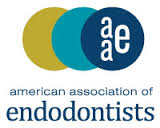No one wants to learn he or she has a cavity. Thankfully modern dentistry means a simple cavity doesn’t have to feel like the end of the world, or your smile as you know it. Dental crowns not only help protect a tooth made fragile by a cavity, by providing a tight seal, but they can also help restore the function and beauty of a damaged smile. Crowns can be made of metal, zirconia, porcelain or a combination of porcelain-fused-to-metal, all of which provide unique benefits. Your restorative dentist can help determine which is right for you.
When Metal Is The Right Choice
- Metal crowns are most often recommended when the tooth in need of restorative treatment is one located near the back of the mouth, therefore less visible than front teeth, and one that will go through a lot of natural wear.
- Metal crowns have been proven safe for most patients. The obvious exceptions are those with metal allergies, and pregnant or nursing women may wish to delay any dental procedures involving metal.
What Porcelain Can Provide
- Porcelain crowns offer a number of benefits, namely that they can create a seamless restoration, since porcelain can be made to closely match teeth’s natural shape, shading and even contouring.
- Porcelain is also very similar to natural teeth enamel, meaning it is both stain and chip-resistant.
Exploring Other Options
- Metal-fused-to-porcelain combines the strength of metal with the beauty of porcelain. Again this is most appropriate for highly used teeth, and of course, only for patients without any metal allergies.
- Zirconia is actually one of the strongest materials used in dental prosthetics. It is also highly adaptable, making it a beautiful way to complete smiles.
- Your restorative dentist can help you determine which material is best suited for your smile, based on where the damaged or missing tooth is located, your lifestyle, overall oral health, and other factors.
- Besides helping preserve damaged teeth, dental crowns can also be used in conjunction with dental bridges and dental implants to provide stable forms of restoration after tooth loss or an extraction.










